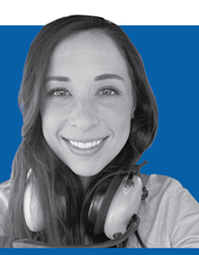
Meg Eaton ’12MSN
Most families say that the day of diagnosis is the worst day of their lives. Meg Eaton, a nurse practitioner in pediatric oncology, was there to help talk through the meaning of the diagnosis and the treatment options available. She would offer comfort, and avenues toward a kind of resettlement. Sometimes the children would remain her patients for years, aging within the hospital. “We would celebrate multiple birthdays together.”
She came to this vocation during a clinical research internship in college. She worked in the hospital and “saw what nurses do every day”: not just the physical care that they provided for the people cycling in and out, but also the psychological and emotional support they gave. “Entering a room and getting a task done was not the point,” she says. Developing trust and relationships, providing care across its many dimensions—that was the point.
This proved especially true in pediatric oncology, which Eaton entered as a nurse practitioner right after graduating from Yale. Her patients and their families lodged themselves firmly in her life. She attended weddings; she wrote letters of reference for college; she sat through funerals. And then her career began to evolve in 2017, while she was working as a nurse at the University of California, San Francisco. There, she volunteered with a group of practitioners who offered advice to health-care startups. She worked for two of these startups while continuing her clinical practice. In 2020, after much consideration, Eaton decided that she would join Apple Health, which keeps and protects health records, medications, labs, and more.
“It was a hard choice. I still wrestle with it,” she says. But she saw how much of health care can and does occur outside of the hospital, where most of life happens, and she was inspired by the potential for technology to help millions of people. It felt important, too, for nurses to be a part of the conversation about health technology, which was advancing rapidly. And though she misses her work with patients, she still hears from some of her old ones—an out-of-the-blue email or a text. “When I get those, when I hear from a kiddo I haven’t heard from for years, and maybe they have kids of their own and they want me to see that they’re doing okay, it comes full circle in those moments and it’s beautiful.”
 loading
loading